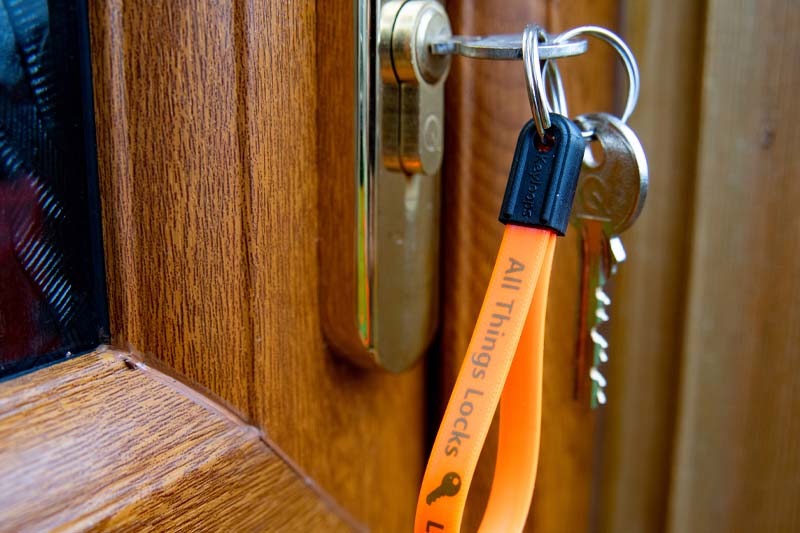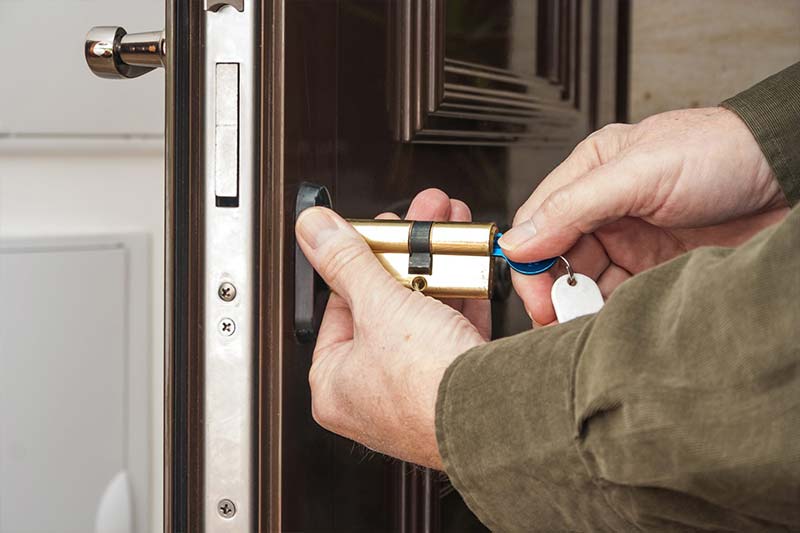Your Local Locksmith in Carmarthen

Are you looking for a locksmith service in Carmarthen, Carmarthenshire?
All Things Locks offer a 24/7 emergency locksmith service in Carmarthen and surrounding areas for people who need help entering their homes.
We use a range of non-destructive entry techniques to get you back into your property, and can provide replacement locks and keys if necessary.
We are fully insured and DBS checked to give you peace of mind.
We are affordable and honest with our pricing, and always make sure you are happy with the emergency locksmith services that we need to offer before we go ahead.
Follow the link below to submit an enquiry online, but for a more immediate response we recommend calling us directly.
Are You Looking for Key Cutters Near You?
We Provide Key Cutting Services in Carmarthen, Carmarthenshire

We can cut additional keys for any locks that we have installed either on site or in our workshop before we arrive that will be tested and we know they work perfectly.
We can also cut keys for any existing locks that you may have.
There are literally hundreds of different types of keys for hundreds of different makes, models and types of locks.
At All Things Locks we have an extensive stock of keys in our workshop as well as the best suppliers in the industry for anything that we don’t currently have in stock.
Trusted Lock Repairs And Lock Replacements In Carmarthen




Do You Need a Locksmith Service In Carmarthen?
About Carmarthen
Carmarthen is the county town of Carmarthenshire and a community in Wales, lying on the River Towy. 8 miles north of its estuary in Carmarthen Bay. The population was 14,185 in 2011, down from 15,854 in 2001, but gauged at 16,285 in 2019.
It was the most populous borough in Wales in the 16th–18th centuries, described by William Camden as “chief citie of the country”. Growth stagnated by the mid-19th century as new settlements developed in the South Wales Coalfield.
When Britannia was a Roman province, Carmarthen was the civitas capital of the Demetae tribe, known as Moridunum (“Sea Fort”). It is possibly the oldest town in Wales, recorded by Ptolemy and in the Antonine Itinerary. The Roman fort is believed to date from about AD 75. A Roman coin hoard was found nearby in 2006. Near the fort is one of seven surviving Roman amphitheatres in Britain and only two in Roman Wales (the other being at Isca Augusta, Roman Caerleon). Excavated in 1968, the Carmarthen fort has an arena of 50 by 30 yards (about 46 by 27 metres); the cavea (seating area) is 100 by 73 yards (92 by 67 metres). Veprauskas has argued for identifying it as the Cair Guorthigirn (“Fort Vortigern”) listed by Nennius among the 28 cities of Britain in his History of the Britons. Evidence of the early Roman town has been investigated for several years, revealing urban sites likely to date from the 2nd century.
During the Middle Ages, the settlement then known as Llanteulyddog (‘St Teulyddog’s) accounted one of the seven principal sees (Cantrefi) in Dyfed. The strategic importance of Carmarthen caused the Norman William fitz Baldwin to build a castle there, probably about 1094. The current castle site is known to have been occupied since 1105. The castle itself was destroyed by Llywelyn the Great in 1215, but rebuilt in 1223, when permission was given for a town wall and crenellations, making it one of the first medieval walled towns in Wales. In 1405, the town was captured and the castle sacked by Owain Glyndŵr. The Black Book of Carmarthen of about 1250 is associated with the town’s Priory of SS John the Evangelist and Teulyddog.
The Black Death of 1347–1349 arrived in Carmarthen with the thriving river trade. It destroyed and devastated villages such as Llanllwch. Local historians cite the plague pit for the mass burial of the dead in the graveyard that adjoins the Maes-yr-Ysgol and Llys Model housing at the rear of St Catherine Street.
Carmarthen Town Council, established in 1974, and replacing the former Carmarthen Borough Council, consists of 18 town councillors elected from the three wards of the town. Its responsibilities include maintenance of the town’s five parks and the town cemetery.
There are two county electoral wards, Carmarthen Town North and South (formerly Carmarthen Town North and Carmarthen Town South) electing three councillors and Carmarthen Town West, electing two councillors to Carmarthenshire County Council.
Picton’s monument
Main article: Picton Monument, Carmarthen
The Picton Monument in 2008
In 1828, a monument was erected at the west end of the town to honour Lieutenant General Sir Thomas Picton, from Haverfordwest, who had died at the Battle of Waterloo in 1815. The pillar, which was about 75 ft (23 m), was designed to echo Trajan’s column in Rome. A statue of Picton, wrapped in a cloak and supported by a baluster above emblems of spears surmounted the column.
Within a few years, the monument became dilapidated. The entire pillar was taken down in 1846. In the 1970s, the replacement sculptures were rediscovered in Johnstown and are now displayed in Carmarthenshire County Museum.
After demolition of the first monument, a new structure honouring Picton was commissioned from the architect Frances Fowler. The foundation stone was laid on Monument Hill in 1847. In 1984, the top section was declared unsafe and taken down. Four years later, the whole monument was rebuilt stone-by-stone on stronger foundations.
A campaign to remove the monument due to Picton’s treatment of slaves arose in the wake of the removal of the Statue of Edward Colston in Bristol on 6 June 2020.
Railway
Carmarthen railway station is on the West Wales Line. It opened in 1852. The town has rail links to Cardiff via Swansea to the east and Fishguard Harbour, Milford Haven, Tenby, Pembroke and Pembroke Dock to the west. There are daily direct intercity trains to London. The area suffered a number of rail closures in the 1960s under the Beeching Axe: one to Llandeilo closed in 1963 and one to Lampeter and Aberystwyth in 1965.
Buses
Carmarthen is a stop on the Eurolines bus route 890, linking London with a number of cities and towns in Munster and South Leinster in Ireland. The service may be used to destinations in Ireland, but may not be used to other stops in Britain. There is a Park and Ride service running daily from Monday to Saturday from 7.00 to 19.00 between Nantyci, to the west of Carmarthen town, and the town centre.
Sports
The town has two rugby union teams: Carmarthen Quins and Carmarthen Athletic. Quins currently plays in the Welsh Premier Division league after promotion to the Premiership in the 2008/2009 season. CPC Bears, a rugby league club based in Carmarthen and the regional side for Carmarthenshire, Pembrokeshire and Ceredigion, plays in the Welsh Premier Division of the Rugby League Conference.
The town’s semi-professional football team, Carmarthen Town F.C., plays in the Cymru South. Founded in 1948, it plays its home games at Richmond Park. The club colours, reflected in its crest and kit, are gold and black. The town also has a youth football team Carmarthen Stars that plays in the local Carmarthenshire Junior Leagues from the under-12s age group to the under-16s age group.
The town has two golf courses, a leisure centre with an eight-lane, 25-metre swimming pool, where the Carmarthen district swimming club is based, a synthetic athletics track, and an outdoor velodrome. It also has an athletics team, Carmarthen Harriers. A cycle track opened in about 1900 and remains in use. Motorcycle speedway racing was staged in the early 2000s at a track built on the western outskirts of the town. The team raced in the Conference League.
Community – Carmarthen
Principal area – Carmarthenshire
Ceremonial county – Dyfed
Country – Wales
Sovereign state – United Kingdom
Post town – CARMARTHEN
Postcode district – SA31-33
Dialling code – 1267
Police – Dyfed-Powys
Fire – Mid and West Wales
